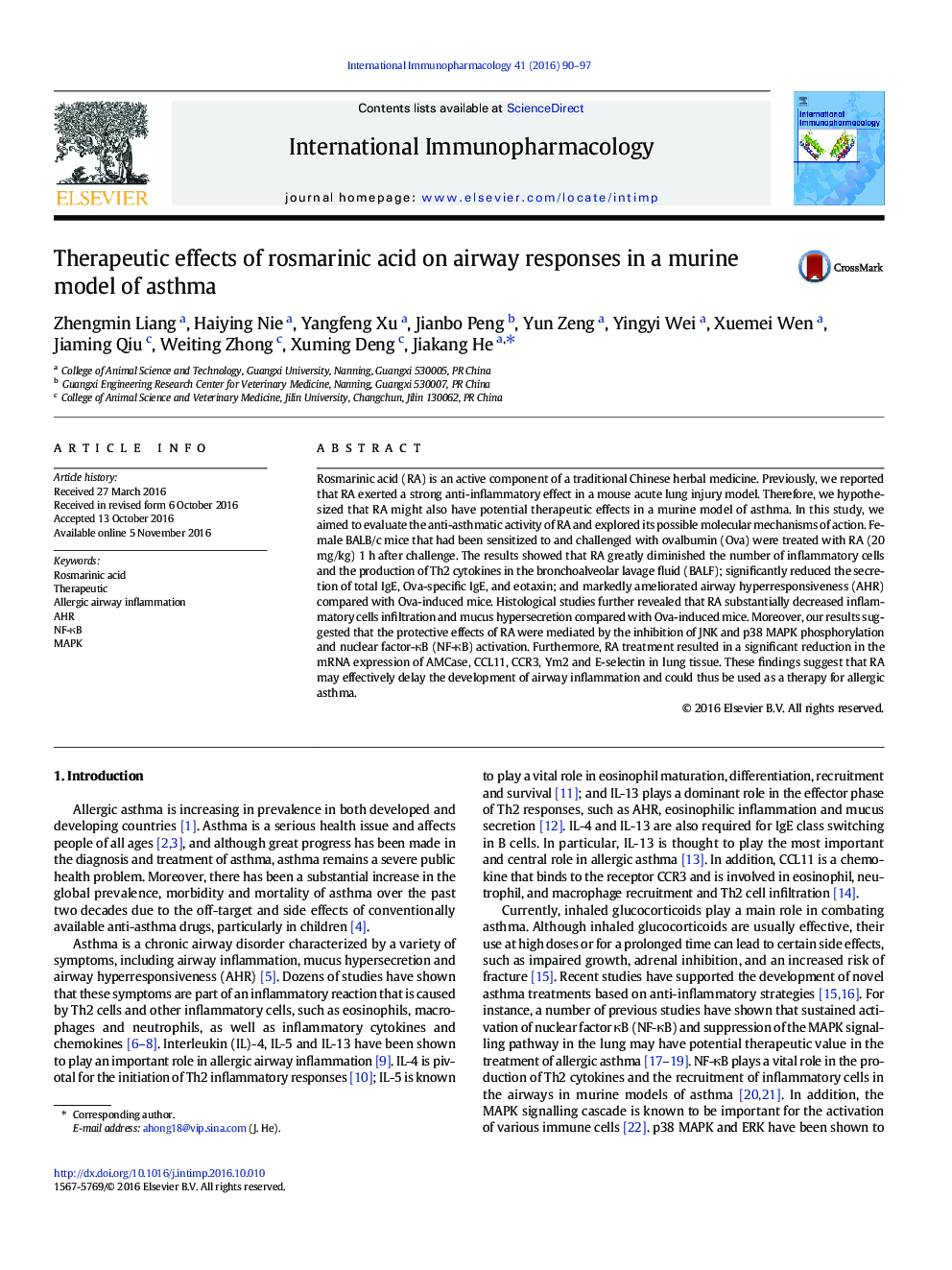| کد مقاله | کد نشریه | سال انتشار | مقاله انگلیسی | نسخه تمام متن |
|---|---|---|---|---|
| 5555347 | 1559749 | 2016 | 8 صفحه PDF | دانلود رایگان |
- Rosmarinic acid may serve as a promising therapeutic agent for the treatment of patients with allergic airway inflammation.
- Effect of Rosmarinic acid on asthma is attributed to mitigating airway inflammatory process and airway hyperresponsiveness.
- Rosmarinic acid exhibits a therapeutic effect on asthma via suppression of MAPK and NF-κB signalling pathways.
- Our findings provide a new potential treatment for allergic asthma from traditional Chinese herbal medicine.
Rosmarinic acid (RA) is an active component of a traditional Chinese herbal medicine. Previously, we reported that RA exerted a strong anti-inflammatory effect in a mouse acute lung injury model. Therefore, we hypothesized that RA might also have potential therapeutic effects in a murine model of asthma. In this study, we aimed to evaluate the anti-asthmatic activity of RA and explored its possible molecular mechanisms of action. Female BALB/c mice that had been sensitized to and challenged with ovalbumin (Ova) were treated with RA (20 mg/kg) 1 h after challenge. The results showed that RA greatly diminished the number of inflammatory cells and the production of Th2 cytokines in the bronchoalveolar lavage fluid (BALF); significantly reduced the secretion of total IgE, Ova-specific IgE, and eotaxin; and markedly ameliorated airway hyperresponsiveness (AHR) compared with Ova-induced mice. Histological studies further revealed that RA substantially decreased inflammatory cells infiltration and mucus hypersecretion compared with Ova-induced mice. Moreover, our results suggested that the protective effects of RA were mediated by the inhibition of JNK and p38 MAPK phosphorylation and nuclear factor-κB (NF-κB) activation. Furthermore, RA treatment resulted in a significant reduction in the mRNA expression of AMCase, CCL11, CCR3, Ym2 and E-selectin in lung tissue. These findings suggest that RA may effectively delay the development of airway inflammation and could thus be used as a therapy for allergic asthma.
Journal: International Immunopharmacology - Volume 41, December 2016, Pages 90-97
